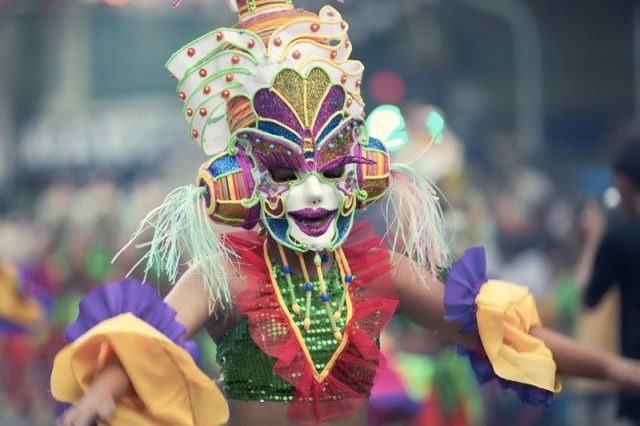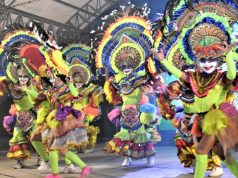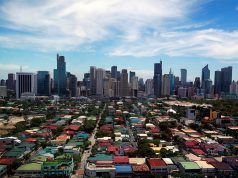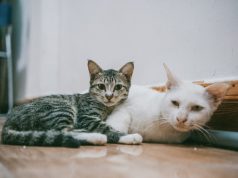BACOLOD CITY, Philippines — Bacolod City’s annual MassKara Festival is among the country’s biggest celebrations similar to Rio Carnival in Brazil.
MassKara, translated literally as “many faces”, is held every October and traces its official orgins to 1980 when the sugar industry was struggling and an unfortunate ferry accident left about 750 Negrenses dead.
The festival was first held on October 19, 1980 coinciding with Bacolod City’s Charter Day celebration with the intent of uplifting the spirits of the people and bringing back the smiles to their faces through the many masks.
However, in 1979, a group of artists conducted art workshops in remote villages for local residents to teach them how to make masks using common materials such as papier-mâché and coconut husks.
The intent was for them to make creative masks of their own design and sell it to tourists as an income-generating venture.
Faces behind the masks
The original masks made by villagers were not extravagant smiling masks like those worn during the annual MassKara Festival and parade.
Rodney Martinez, a founding member of the Arts Association of Bacolod-Negros which was founded in 1975, recalled how he and the other artist taught villagers to make masks so they can sell it to tourists and make money.
“We were not thinking of having a festival. We thought of the maskara as an income-generating product,” Martinez said in an interview during the 43rd founding anniversary of AABN.
“We went to barangays and we taught the people there to make papier-mâché masks of their own design and concept,” he said.
The villagers, which could be anyone from the farmers, fisherfolk, women and children, were taught to use readily available indigenous materials.
“It could be any kind of mask that the maker would like to invent or create. So its not just one pattern of mask. It was a variety of creative masks that we wanted them to make,” Martinez said.
Martinez, a graduate of Fine Arts from the University of Santo Tomas in 1964, said that the idea of creating masks so that it could be sold to tourists just casually came up during a drinking session with his fellow artists.
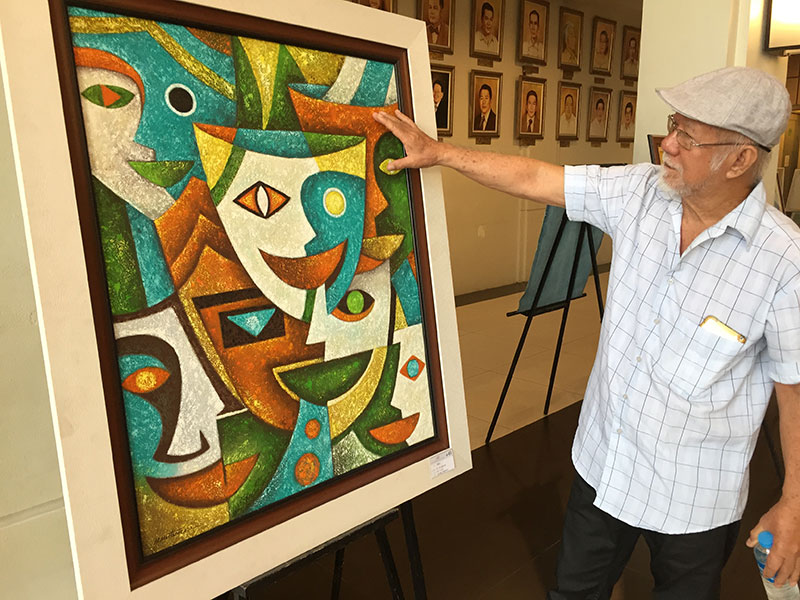
He said they wanted to make the maskara a signature souvenir of Bacolod so that it could be known as a “maskara city” and get the attention of tourists.
“That’s what we were dreaming of, to come up with a maskara city where you can see a lot of creative masks,” Martinez said referring to the group of around 20 to 30 artists back then who went around the small villages.
He said they liked the idea of the mask as a souvenir item because it was light and easy to bring around for tourists who can also wear it whenever they want.
“And then when you celebrate in the streets you can wear it and then you can see a lot of different faces not only one design but you can see a lot,” Martinez said.
Overshadowed by the city’s festival
The local government was quick to notice how the local celebrations in the villages had clicked with the people and how many were joining it.
“We had one year of celebrating that maskara celebration in the street. For only one time,” Martinez said.
“And then the second time it was already the government that organized the celebrations,” he added.
The local government says that the MassKara Festival was organized to bring back the smiling faces of people who were saddened by the tragedy of M/S Don Juan ferry which was carrying hundreds of Negros natives.
The ferry had about 1,000 passengers on board and was on its way to Bacolod from Manila when it was hit on its the side by the tanker M/T Tacloban City off the coast of Mindoro in the evening of April 22, 1980.
It sank in a matter of minutes leaving hundreds to jump in the water without life jackets or life boats. An estimated 750 people died.
In recent years, the MassKara festival has become the biggest tourist attraction for Bacolod with hotel bookings being made a year in advance.
Martinez lamented how the festival can feel “choreographed” and already “arranged” and how the smiling masks are “factory-made” with just one template instead of being a creative and artistic artwork.
“The mask now only has one face,” he said. “All the residents have to do is have their own head dresses.”
“But its still the dream of the artists that we can make masks that are really creative that we can show around during the MassKara Festival,” Martinez added.

